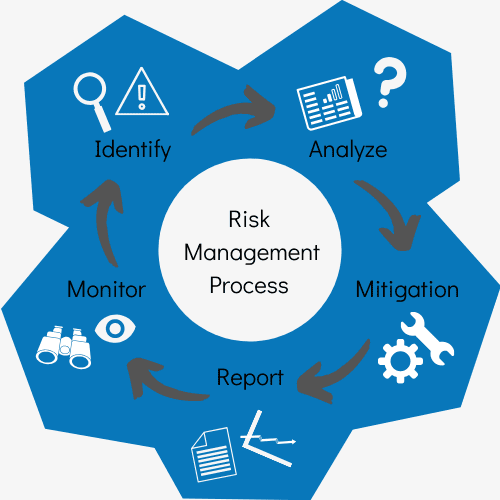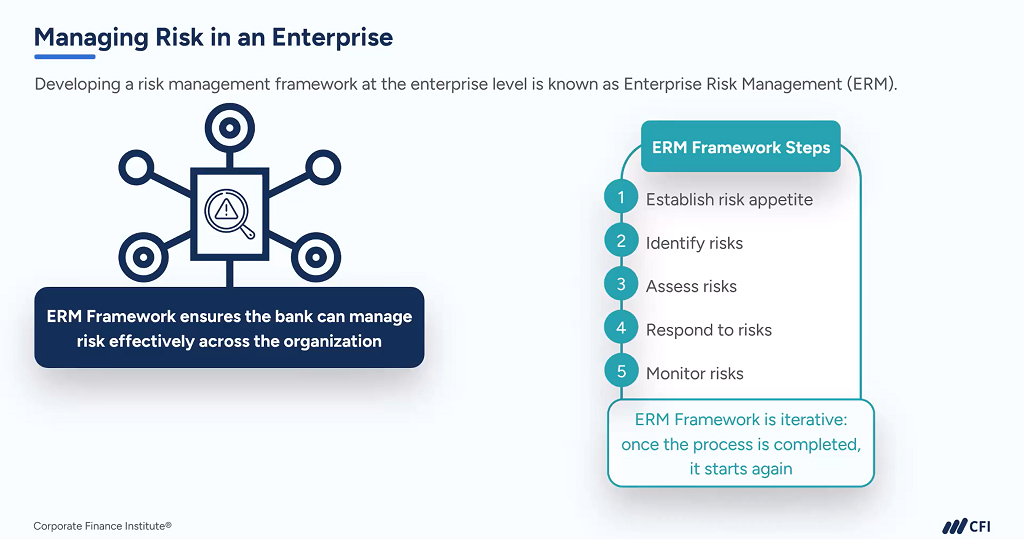Understanding the Importance of Risk Management in Modern Business Practices
Understanding the Importance of Risk Management in Modern Business Practices
Blog Article
The Important Relevance of Risk Management in Getting Business Goals
In the rapidly advancing service landscape, the ability to navigate unpredictability has actually come to be an important. This is where Risk Management steps in, giving a structured strategy to determining, evaluating, and mitigating possible obstacles to proceed. It's more than just a safety measure - it's a tactical device, cultivating resilience and innovation. As we explore the crucial role of Risk Management in achieving business objectives, one can't wonder but aid: exactly how does this equate into real-world success?
Comprehending the Idea of Risk Management in Organization

The Integral Duty of Risk Management in Strategic Planning
Integrating Risk Management into strategic preparation acts as a secure for organizations, securing their long-lasting plans with a strong structure of preparedness and resilience. Risk Management offers a structure for expecting unpredictabilities and developing suitable responses, ensuring the company's survival and success even in the face of hardship. By incorporating Risk Management right into critical preparation, organizations can transform these uncertainties into chances for growth and advancement.

Methods for Identifying, Assessing, and Prioritizing Dangers
The procedure begins with Risk recognition, using tools such as SWOT analysis, which assists in pinpointing possible hazards and opportunities. Next, Risk assessment is performed to ascertain the prospective effect and probability of each Risk. Dangers are prioritized based on their prospective effect and probability, permitting organizations to concentrate their sources on critical threats.
Safeguarding Organizational Operations Through Effective Risk Management
In the organization landscape laden with unpredictabilities, effective Risk Management plays a crucial function in securing business operations. It offers as a protective shield, alleviating the negative effects of possible threats and guaranteeing the smooth functioning of all processes. By recognizing and analyzing prospective risks, Risk Management allows companies to develop robust backup plans. This preventative technique aids in keeping functional security, also when continue reading this confronted with unexpected situations. In essence, Risk Management is the lifeline that keeps the business operations afloat in the middle of stormy waters. It makes certain not only the survival but the sustainable development of a company, making it an important tool in attaining business objectives. Thus, companies need to buy detailed Risk Management strategies to secure their procedures.

Converting Potential Dangers to Opportunities: The Power of Risk Management
While prospective dangers might initially appear as barricades to business success, reliable Risk Management can change them right i thought about this into possibilities. A positive technique to risk Management includes identifying, examining, and click here for more prioritizing risks to design techniques that transform them right into prospective advantages. This process requires the development of a risk-aware culture within the organization, urging people to view dangers as potential drivers for change and development, as opposed to simple threats. importance of risk management. With this lens, possible threats end up being possibilities to innovate, improve processes, and strengthen durability. Hence, by leveraging the power of Risk Management, companies can not only protect their operations however additionally spur growth and accomplish their goals in an uncertain organization setting.
Case Studies: Success Stories of Risk Management Driving Organization Objectives
Successful implementation of Risk Management techniques has produced outstanding cause numerous businesses, emphasizing the values of this method. International firms like Microsoft and Google, for example, have leveraged Risk Management to reduce dangers and manipulate chances, driving their company goals ahead. Microsoft's aggressive Risk Management technique aided it pivot swiftly during the 2020 pandemic, transitioning to remote work smoothly, therefore keeping productivity. Google, by evaluating and mitigating potential dangers in its cloud-based solutions, has ensured continuous service, therefore enhancing customer count on. These examples highlight exactly how successful Risk Management can not only guide organizations clear of potential challenges however also lead them in the direction of their critical objectives. Hence, Risk Management is integral to the search of business objectives.
Conclusion
In verdict, Risk Management is basically essential in accomplishing organizational objectives. It supplies a systematic technique to determining, analyzing, and dealing with possible hazards and chances. Greater than just mitigating risks, it likewise fosters technology, resilience, and sustainable growth. By including Risk Management into tactical preparation, businesses can better navigate uncertainties, secure procedures, and capitalise on possibilities, therefore aligning with long-term purposes.
At its core, Risk Management is the process of identifying, evaluating, and dealing with potential hazards that can adversely affect an organization's operations or objectives. Next off, Risk evaluation is carried out to ascertain the potential influence and chance of each Risk. Dangers are prioritized based on their potential influence and probability, permitting companies to concentrate their sources on high-priority dangers. By recognizing and analyzing potential threats, Risk Management enables organizations to establish robust backup strategies. A proactive technique to run the risk of Management involves identifying, analyzing, and prioritizing risks to design approaches that turn them into possible benefits.
Report this page